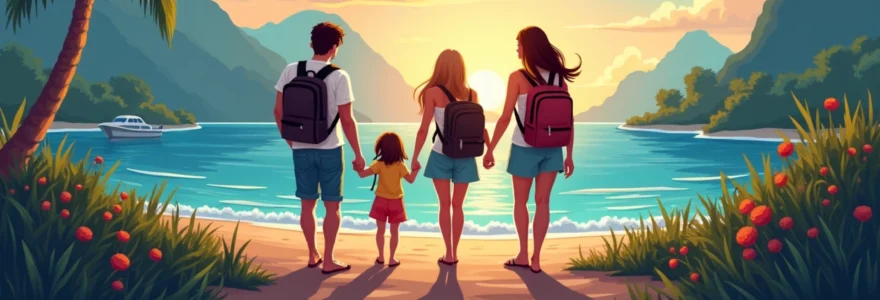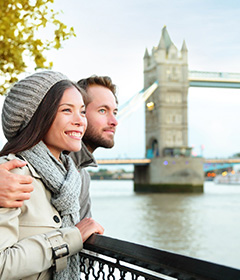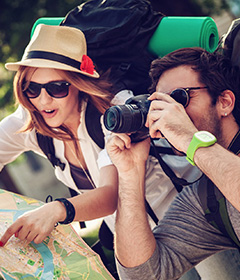Embarking on a journey with your closest friends is more than just a holiday—it’s an opportunity to forge unbreakable bonds and create memories that will be cherished for years to come. The shared experiences of exploring new destinations, overcoming challenges together, and immersing yourselves in different cultures can have a profound impact on friendships and personal growth. But what makes these travels with friends so memorable, and why do they leave such a lasting impression on our lives?
Psychological impact of shared travel experiences
The psychological benefits of travelling with friends are numerous and deeply impactful. When we venture out into the world with our closest companions, we create a unique environment that fosters emotional connection and personal development. These shared experiences often become the foundation for stronger, more resilient friendships that can withstand the test of time.
One of the key psychological impacts of group travel is the sense of belonging and support it provides. When facing new and potentially challenging situations in unfamiliar environments, having trusted friends by your side can significantly reduce stress and anxiety. This mutual support system allows individuals to step out of their comfort zones more readily, leading to personal growth and increased self-confidence.
Moreover, shared travel experiences often lead to a phenomenon known as collective effervescence —a state of heightened emotional energy that occurs when a group of people share a common experience or achieve a common goal. This shared emotional state can create a powerful bond between friends, reinforcing their connection and creating a sense of unity that persists long after the trip has ended.
Neurological basis of memory formation during group adventures
The way our brains process and store memories during group travel is fascinating and helps explain why these experiences often feel so vivid and enduring. Several key neurological processes contribute to the formation of lasting memories during shared adventures.
Hippocampus activation in novel environments
The hippocampus, a region of the brain crucial for memory formation, becomes highly active when we encounter new and unfamiliar environments. When travelling with friends, we’re constantly exposed to novel stimuli, which triggers increased hippocampal activity. This heightened state of activation enhances our ability to form and consolidate memories, making the experiences more likely to be retained long-term.
Oxytocin release and social bonding in unfamiliar settings
Oxytocin, often referred to as the “bonding hormone,” plays a significant role in strengthening social connections. During group travel, the brain releases increased levels of oxytocin in response to positive social interactions and shared experiences. This neurochemical boost reinforces the emotional bonds between friends and associates these good feelings with the travel memories being formed.
Dopamine surges from shared positive experiences
The anticipation and enjoyment of new experiences trigger the release of dopamine, a neurotransmitter associated with pleasure and reward. When these positive experiences are shared with friends, the dopamine surge can be even more pronounced, creating a powerful emotional imprint that enhances memory formation and recall.
Amygdala’s role in emotional memory encoding
The amygdala, responsible for processing emotions, plays a crucial role in encoding emotionally charged memories. When travelling with friends, the heightened emotional states experienced during adventures, challenges, or moments of joy activate the amygdala, leading to the creation of more vivid and long-lasting memories.
Cultural immersion and identity reinforcement among friends
Travelling with friends not only creates lasting memories but also provides a unique opportunity for cultural immersion and identity reinforcement. When a group of friends experiences a new culture together, it can lead to a deeper understanding of both the world around them and their own cultural identities.
Collective adaptation to local customs in destinations like bali or morocco
When friends travel to culturally rich destinations such as Bali or Morocco, they often find themselves collectively adapting to local customs and traditions. This shared experience of navigating unfamiliar social norms can be both challenging and rewarding. For example, learning to participate in a traditional Balinese ceremony or navigating the bustling souks of Marrakech as a group can create a sense of collective accomplishment and deepen cultural appreciation.
Shared language acquisition experiences in multilingual regions
Travelling to multilingual regions provides an excellent opportunity for friends to embark on a shared language learning journey. Whether it’s attempting to order tapas in Spanish or deciphering street signs in Japanese, the process of acquiring new language skills together can be both humorous and bonding. These shared linguistic challenges often result in inside jokes and memorable anecdotes that friends will recount for years to come.
Group participation in traditional rituals or festivals
Participating in local festivals or traditional rituals as a group can be a transformative experience. Whether it’s joining the vibrant celebrations of Holi in India or taking part in a traditional tea ceremony in Japan, these shared cultural experiences create a unique bond among friends. The collective immersion in unfamiliar customs and traditions can lead to a deeper appreciation for diversity and a stronger sense of global citizenship.
Adventure tourism and collective Risk-Taking behaviours
Adventure tourism with friends often involves engaging in collective risk-taking behaviours, which can significantly enhance the bonding experience and create some of the most vivid memories. The shared adrenaline rush and the trust required to face challenges together can forge unbreakable ties between friends.
Adrenaline-fueled bonding in extreme sports like bungee jumping in queenstown
Queenstown, New Zealand, often dubbed the “adventure capital of the world,” offers the perfect backdrop for friends seeking an adrenaline rush. Engaging in extreme sports like bungee jumping together can create an intense shared experience. The collective nervousness, encouragement, and eventual triumph of overcoming fears together can create a powerful emotional connection that lasts long after the jump.
Trust-building through shared challenges on inca trail hikes
Embarking on challenging treks like the Inca Trail to Machu Picchu requires friends to rely on each other for physical and emotional support. The shared struggle of navigating difficult terrain, dealing with altitude sickness, and pushing through exhaustion builds a unique form of trust. These experiences often result in a deep sense of mutual respect and understanding among friends that transcends the journey itself.
Overcoming fears together: skydiving in dubai or shark cage diving in south africa
Activities like skydiving over the Palm Jumeirah in Dubai or shark cage diving in Gansbaai, South Africa, present opportunities for friends to face their fears together. The process of encouraging each other, sharing the intense anticipation, and ultimately conquering these daunting challenges as a group can create an unparalleled sense of camaraderie and shared accomplishment.
Digital preservation of group travel memories
In the digital age, the way we capture, share, and relive our travel memories has been transformed. Technology now plays a crucial role in how friends preserve and reminisce about their shared adventures, often enhancing the longevity and vividness of these memories.
Collaborative photo albums and video montages using cloud platforms
Cloud-based platforms have revolutionized the way friends compile and share their travel memories. Services like Google Photos or Apple’s iCloud allow groups to create collaborative albums where everyone can contribute their photos and videos. This collective approach to documenting the journey ensures that no moment is missed and provides a comprehensive visual narrative of the shared experience.
Creating video montages together has become increasingly popular, with friends combining their footage to produce a cinematic representation of their travels. These collaborative projects not only serve as a fun post-trip activity but also reinforce the shared nature of the experience and create a lasting digital keepsake.
Social media’s role in Real-Time memory sharing and future reminiscing
Social media platforms play a dual role in preserving travel memories. During the trip, friends often share real-time updates, stories, and posts, creating a digital diary of their adventures. This immediate sharing not only keeps friends and family back home engaged but also serves as a form of instant memory creation and preservation.
Long after the trip has ended, these social media posts become valuable triggers for reminiscing. Features like Facebook’s “On This Day” or Instagram’s archive function allow friends to rediscover and relive their shared experiences, often sparking conversations and reigniting the emotions associated with those memories.
Impact of geo-tagging and Location-Based services on memory retrieval
Geo-tagging and location-based services have added a new dimension to how we recall and contextualize our travel memories. By attaching precise location data to photos and posts, friends can create a detailed map of their journey. This geographical context enhances memory retrieval, allowing individuals to mentally retrace their steps and relive specific moments with greater clarity.
Moreover, location-based reminders on smartphones can trigger unexpected moments of nostalgia. A notification about a place you visited with friends years ago can instantly transport you back to that time, rekindling the emotions and memories associated with that shared experience.
Long-term effects of friend travel on social relationships
The impact of travelling with friends extends far beyond the duration of the trip itself. These shared experiences can have profound and lasting effects on social relationships, often strengthening bonds and influencing how friends interact long after they’ve returned home.
Strengthening of interpersonal bonds through shared references and inside jokes
One of the most enduring effects of friend travel is the creation of a unique shared language and set of references. Inside jokes, catchphrases, and shared anecdotes that emerge during the trip become a sort of secret code among friends. These linguistic shortcuts serve as powerful bonding agents, instantly rekindling the feelings of closeness and camaraderie experienced during the journey.
Even years after the trip, a simple reference to a funny incident or a mimicked accent can transport friends back to that moment, reinforcing their connection and shared history. This shared lexicon becomes a foundation for future interactions, often serving as a source of comfort and familiarity in the group’s dynamic.
Development of collective Problem-Solving skills from travel challenges
Travelling together inevitably presents a variety of challenges, from navigating unfamiliar public transportation systems to resolving conflicts over itinerary choices. Overcoming these obstacles as a group develops a unique set of collective problem-solving skills that often translate into other areas of life.
Friends who have travelled together may find that they work more effectively as a team in other contexts, whether it’s planning future events or collaborating on professional projects. The trust and understanding built through resolving travel dilemmas create a foundation for tackling future challenges with confidence and mutual support.
Impact on future group Decision-Making and conflict resolution
The experiences gained during group travel can significantly influence how friends approach decision-making and conflict resolution in the future. The process of negotiating different preferences, compromising on activities, and finding solutions that satisfy everyone’s needs during a trip serves as valuable practice for handling similar situations in everyday life.
Friends who have successfully navigated the complexities of group travel often develop a more nuanced understanding of each other’s communication styles, priorities, and conflict resolution approaches. This deeper insight can lead to more effective and harmonious interactions in various aspects of their relationships, from planning social gatherings to supporting each other through life’s challenges.
Moreover, the shared experience of overcoming travel-related obstacles can create a sense of resilience within the friend group. This collective confidence in their ability to handle difficult situations together can strengthen the overall bond and make the friendship more robust in the face of future challenges.
In conclusion, the memories created during travels with friends are not just fleeting moments of joy, but powerful experiences that shape our relationships, personal growth, and worldview. From the neurological processes that enhance memory formation to the long-term effects on social dynamics, friend travel offers a unique opportunity to forge unbreakable bonds and create a treasure trove of shared experiences that will be cherished for a lifetime.


